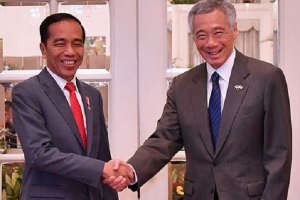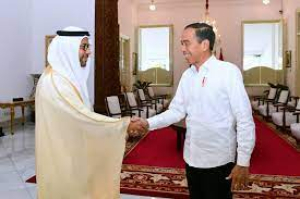Indonesian major tycoons set to invest in new capital city development projects
Domestic investors are showing a growing interest in investing in the Indonesian Capital City (IKN). This enthusiasm involves ten prominent entrepreneurs with a combined investment value of IDR 20 trillion.
These ten tycoons are involved in diverse businesses and hold leading positions in their respective sectors. Their entry into IKN serves as a positive signal for the ambitious mega-project initiated by President Joko Widodo's administration, which is expected to attract the attention of other entrepreneurs.
Here's a summary of the ten tycoons set to invest in IKN:
- Aguan Sugianto Kusuma: Aguan Sugianto Kusuma is the founder of Agung Sedayu Group, a Jakarta-based property developer established in 1971. The company specializes in one-stop living solutions and businesses that combine convenience and comfort for modern lifestyles. Agung Sedayu Group has five property business segments, including city & township development, high-rise buildings, hotels & resorts, malls, and commercial projects.
- Franky Widjaja: Franky Widjaja, the son of conglomerate Eka Tjipta Widjaja, runs the palm oil giant Golden Agri-Resources. Franky's business interests also extend to Sinar Mas Group, which operates in various sectors, including pulp and paper, palm oil, banking and insurance, property, energy and mining, telecommunications, and healthcare through Eka Hospital.
- Anthony Salim: Anthony Salim, the son of entrepreneur Sudono Salim, is reportedly investing in the development of projects in IKN. Salim Group has interests in multiple industries, including automotive, telecommunications, and property, with several listed companies on the Indonesia Stock Exchange.
- Pui Sudarto: Pui Sudarto is the founder of PT Pulauintan Bajaperkasa Konstruksi and has ventured into successful businesses in textiles, property management, healthcare, cleaning services, and security.
- Prajogo Pangestu: Prajogo Pangestu, once ranked among the wealthiest individuals in Indonesia by Forbes, began his career with PT Djajanti Group and later ventured into independent business endeavors. His wealth is primarily derived from PT Barito Pacific Tbk, a company involved in the petrochemical and energy sectors.
- Garibaldi Thohir: Garibaldi Thohir, known as Boy Thohir, is the Director of Adaro Group, a prominent coal exporter. He also owns land for green industrial zones in North Kalimantan. Boy Thohir has holdings in various companies, including PT Adaro Energy Indonesia Tbk and PT Indomobil Sukses Internasional Tbk.
- Soeryadjaya: The Soeryadjaya family is closely associated with Astra International, a conglomerate founded by William Soeryadjaya. While the Soeryadjayas are no longer the controlling shareholders of Astra, the family has a history of involvement in the company.
- Eka Tjandranegara: Eka Tjandranegara, the CEO of Mulia Group, owns several skyscrapers and luxury buildings in Indonesia, including Wisma Mulia, Mal Taman Anggrek, and Mulia Resort in Bali. Mulia Group was founded in 1970 and has been involved in various business activities.
- Kuncoro Wibowo: Kuncoro Wibowo established Kawan Lama Group, which began as a small 3x3 meter hardware store owned by his father, Wong Jin. The business expanded to become Ace Hardware, a successful retail company in Indonesia.
- Djoko Susanto: Djoko Susanto, a prominent figure in Alfamart Group, owns a significant fortune. He started with 560 convenience stores in traditional markets and later expanded the business into various retail brands, including Alfamart and Lawson, both listed on the Indonesia Stock Exchange.
These tycoons represent a significant influx of domestic investment into the IKN project, signaling a positive outlook for President Joko Widodo's ambitious development initiative.
Tag
Already have an account? Sign In
-
Start reading
Freemium
-
Monthly Subscription
30% OFF$26.03
$37.19/MonthCancel anytime
This offer is open to all new subscribers!
Subscribe now -
Yearly Subscription
33% OFF$228.13
$340.5/YearCancel anytime
This offer is open to all new subscribers!
Subscribe now





